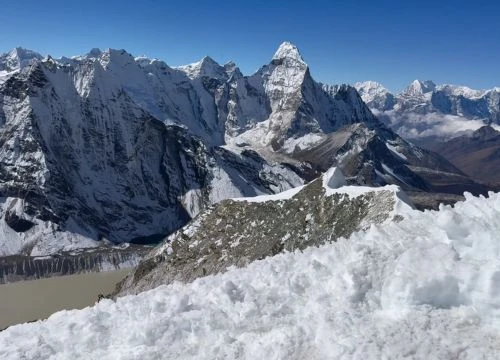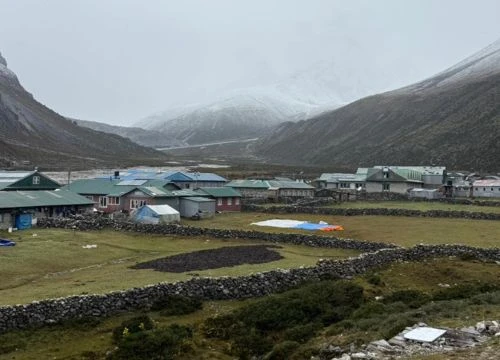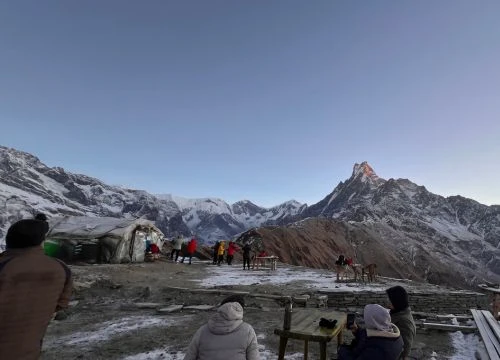Everest Base Camp Without a Porter: Is It Worth It?
Why Some Trekkers Choose a Self-Supported Everest Trek
There are several reasons why travelers choose to carry their own load:
Budget-conscious trekking:
Saving a decent amount in porter fees and reaching the grace of Everest on a low price. Many people have a dream, and among them reaching the grace of Everest is a dream that even budget conscious trekkers want.
Freedom to hike at your own pace without waiting or hurrying. “You have the freedom to hike at your own pace—without needing to match someone else’s rhythm. Since porters carry heavy loads, they often move at a slower speed, and some trekkers feel they lose a bit of independence when adjusting to that pace.”
Some see it as part of the full Himalayan experience. For some trekkers, carrying their own gear is part of the full Himalayan experience. It adds a layer of physical and mental challenge that makes the journey feel more authentic and personally rewarding.
Modern gear allows for ultra-light packing, making porters optional. With today’s lightweight gear and smart packing strategies, many trekkers find they can carry everything they need comfortably—making porters less essential for some even when trekking EBC alone in 2025.
But while the idea may sound romantic, it’s important to weigh the practical realities as expectation may bring a harsh reality that may ruin your Everest trek.
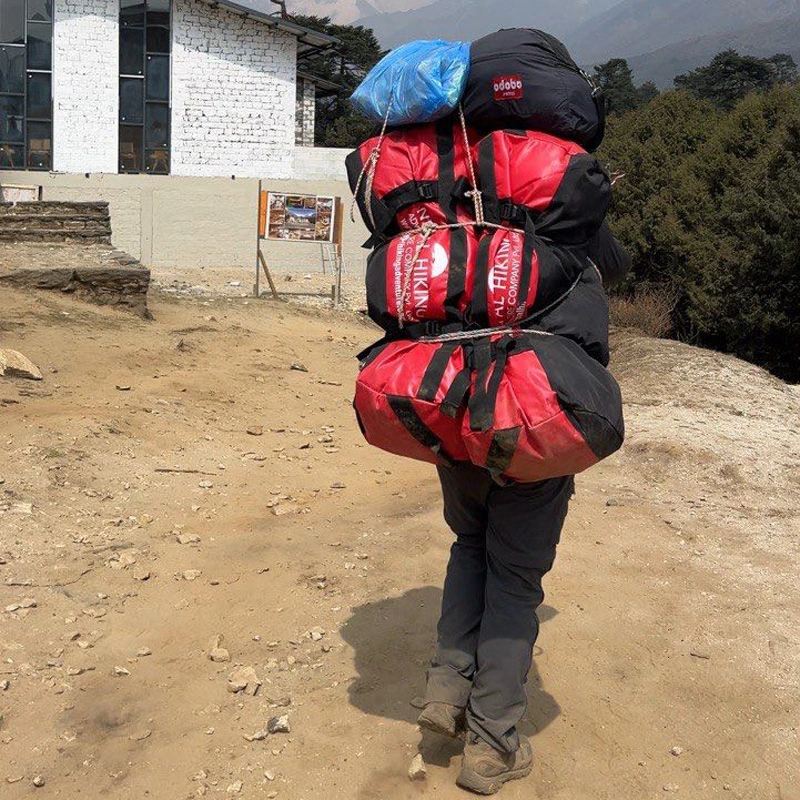 Pros and Cons of Trekking Without a Porter
Pros and Cons of Trekking Without a Porter
Obviously there is a positive side and a negative side of a choice. Likewise, there are various pros and cons for Everest Base Camp without porter.
✅ Pros
- Save money (especially for long treks)
- Total control over your belongings and little bit more privacy and flexibility.
- Greater sense of self-reliance and achievement-it provides a mental clarity.
❌ Cons
- Carrying 10–15 kg at high altitude is exhausting- from my experience of being a porter on Everest Base camp.
- Less energy to enjoy the scenery and take photos.
- More risk of physical strain or injury.
- No backup if you fall ill or get altitude sickness-and that’s a serious problem even for a fit trekker.
Should You Go Without a Porter?
Trekking without a porter is a personal decision and is not judged by anyone. Here's a guide to help you decide:
Go Without a Porter If You Are:
- Physically fit with multi-day trekking experience previously.
- Comfortable carrying 10–12 kg for 5+ hours daily.
- Planning a slower itinerary with rest/acclimatization days-you can plan a self-supported EBC trek at your own pace—with us.
Hire a Porter If You:
- Are trekking for the first time.
- Want to focus on photography or vlogging and capture your memories more distinctly.
- Have previous issues with knees, back, or altitude.
- Want to support local employment in the Khumbu region-Your support helps local porters earn a living in the Khumbu region.
- For anyone rushing their itinerary.
Expert Packing Tips for Self-Carrying
If you're committed to trekking without a porter, packing smart is essential. Here’s how to do it…
- Recommended EBC packing list for self-carry
- Backpack with proper hip support
- 3 to 4 moisture-wicking base layers
- Down jacket (lightweight but warm)
- Trekking pants x2, thermal layers x1
- Sleeping bag (rated to -10°C to -15°C)
- Headlamp, water purification tablets
- Trekking poles (a must for balance with load)
- Snacks, meds, sunscreen, water bottle
- Rain cover for bag + pack raincoat (especially if you are going there during the monsoon)
- Total weight target: Under 12 kg fully packed
How to Train for a Porter-Free EBC Trek
Generally 6–8 weeks before your trek.
- Day hikes with a 10–12 kg backpack ( If possible)
- Stairs or hill climbs with load-to adjust to the bag weight for trekking EBC.
- Core strength training
- Cardio (jogging, swimming, cycling)
The goal is to condition your legs, back, and shoulders for sustained effort at altitude and to help you succeed on Everest.
Health & Safety Considerations
- Altitude sickness hits harder when you’re carrying a heavy load. Allow for more acclimatization days.
- Consider splitting gear weight with a travel partner-your guide
- If you're unsure, you can hire a porter in Namche Bazaar mid-trek if needed.
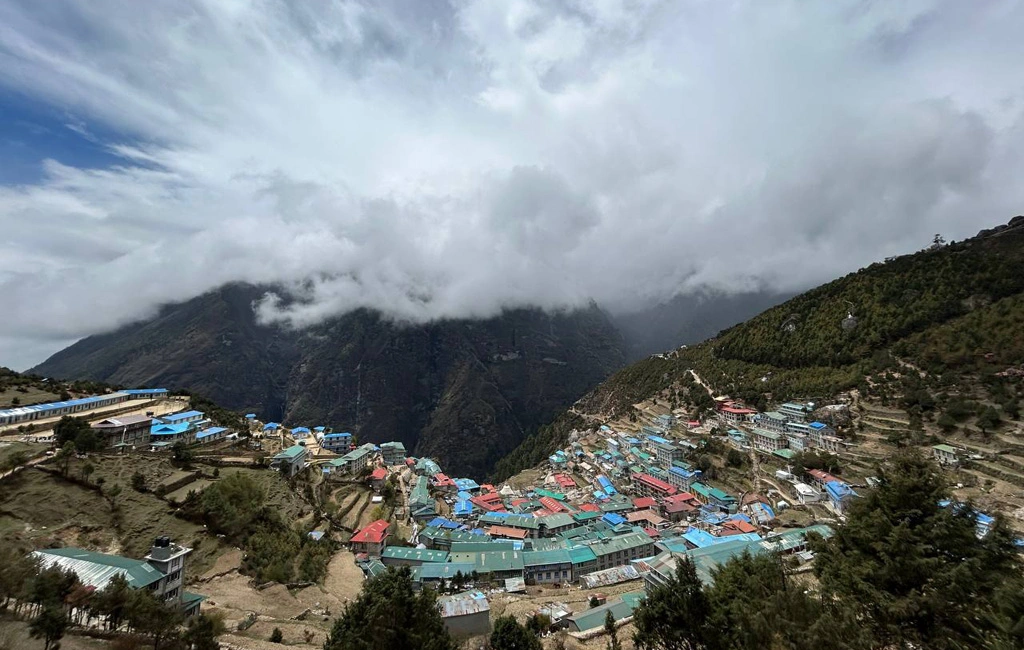
Supporting the Local Economy (Without a Porter)
Worried about not supporting locals if you go solo? There are still ways to give back:
- Tip staff fairly
- Hire a licensed guide only, if not using a porter. We are always available for your assistance in designing your trip your way.
- Buy snacks or souvenirs from village shops.
Final Thoughts: Should You Trek to Everest Base Camp Without a Porter?
Yes—you can. But should you? That depends on your fitness, experience, and personal goals.
If you’re confident, love a physical challenge, and want total independence, going without a porter might be right for you.
But if you want to focus on the mountains, the culture, and the journey itself, hiring a porter allows you to enjoy the trek stress-free—while supporting local livelihoods.
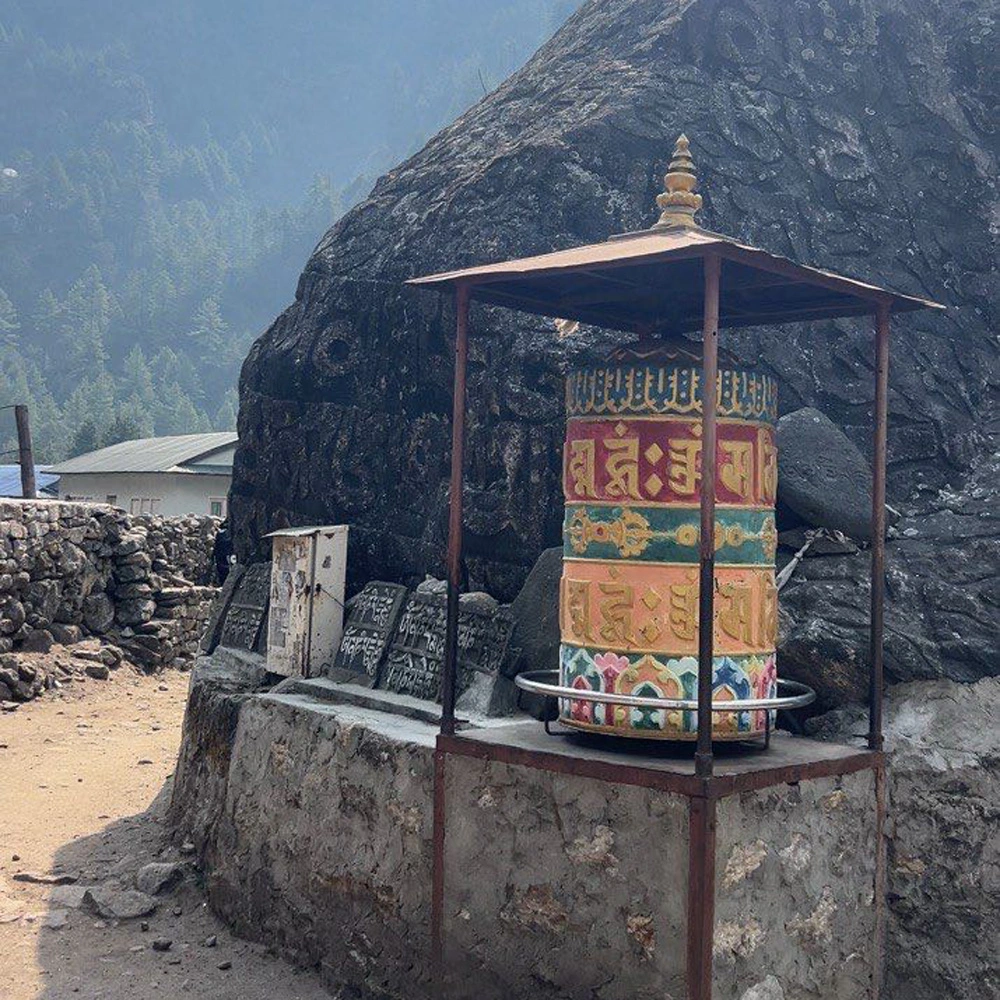 Ready to Plan your Trek?
Ready to Plan your Trek?
We can assist you in organizing the ideal Everest adventure, regardless of your preference for light trekking or on-the-way assistance. We at NepalEverestBaseCamp.com provide professional guidance, reliable local guides, and customized itineraries to fit your preferences and speed. We care about your experience, so let's enjoy this journey together—you, the Everest trail, the breathtaking Himalayas, and us—your trustworthy, local trekking companion.
Extra notes:
- If you’re planning a self-supported EBC trek, remember that carrying 10–12 kg every day is demanding at altitude.
- Choosing an independent Everest trek allows you more freedom—but also requires solid planning and physical prep.
- If you’re confident, love a physical challenge, and want to plan a fully self-supported Everest trek, this option might be right for you.
In addition to that, if you are planning your next trip then you can find your flights here =
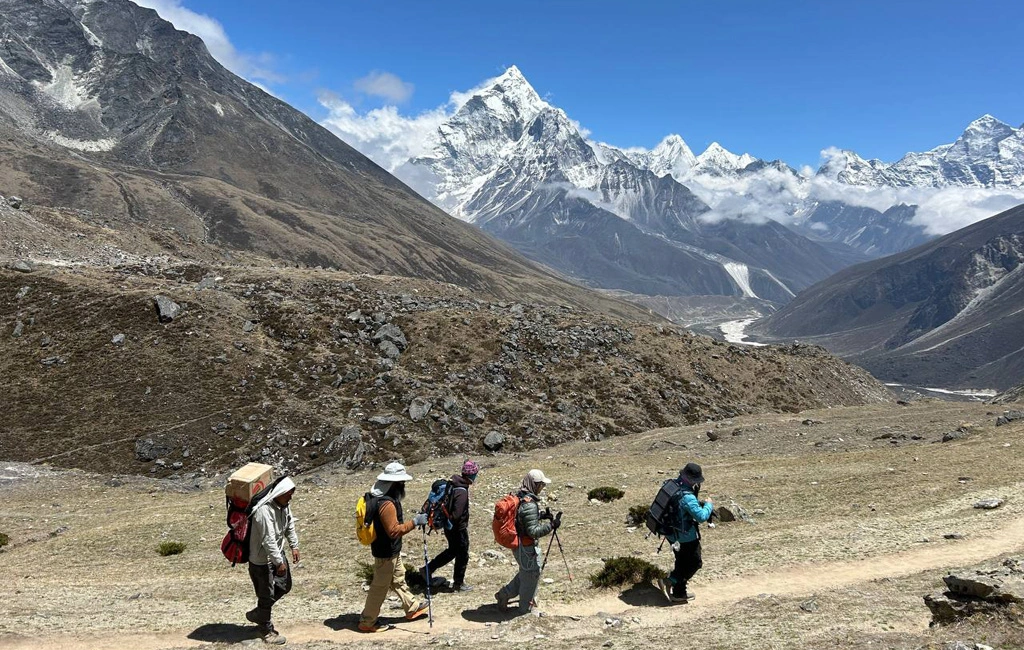

 Pros and Cons of Trekking Without a Porter
Pros and Cons of Trekking Without a Porter
 Ready to Plan your Trek?
Ready to Plan your Trek?
